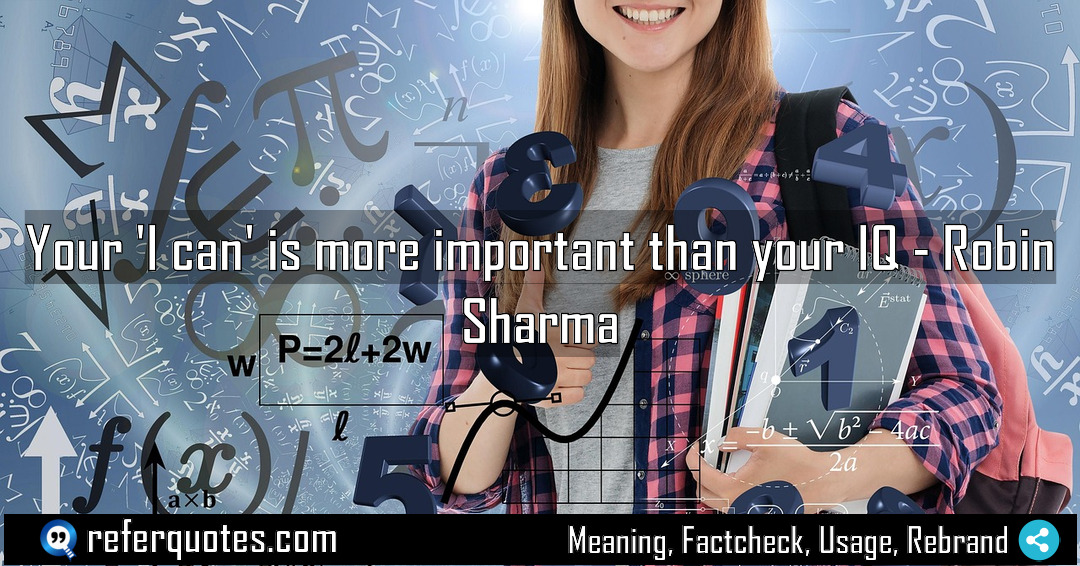You know, I’ve seen this idea play out so many times. Your ‘I can’ is more important than your IQ because raw intelligence is just potential. It’s the belief that you *can* that actually turns that potential into real-world results. It’s a game-changer.
Share Image Quote:Table of Contents
Meaning
At its core, this quote means your belief in your own ability to do something—your “I can”—is a far greater predictor of your success than your innate intelligence, your IQ.
Explanation
Let me break this down for you. I’ve worked with unbelievably smart people who never got anywhere because they were paralyzed by self-doubt. And I’ve seen people with, frankly, average talent achieve incredible things simply because they had this relentless, almost stubborn, belief that they could figure it out. Your IQ is like having a high-performance sports car. It’s impressive. But your ‘I can’ is the fuel. Without that fuel, that car isn’t going anywhere. It’s just a beautiful, stationary object. The magic happens when you stop asking “Am I smart enough?” and start declaring “I can figure this out.” That shift is everything.
Quote Summary
| Context | Attributes |
|---|---|
| Original Language | English (3668) |
| Category | Education (260) |
| Topics | attitude (43), effort (77), intelligence (13) |
| Literary Style | witty (99) |
| Emotion / Mood | encouraging (304) |
| Overall Quote Score | 83 (302) |
Origin & Factcheck
This gem comes straight from Robin Sharma’s 1999 book, The Monk Who Sold His Ferrari. It’s a Canadian-authored book that took the personal development world by storm. You’ll sometimes see it misattributed to other motivational figures, but nope, it’s all Sharma. He really nailed this concept.
Attribution Summary
| Context | Attributes |
|---|---|
| Author | Robin Sharma (51) |
| Source Type | Book (4032) |
| Source/Book Name | The Monk Who Sold His Ferrari (51) |
| Origin Timeperiod | Contemporary (1615) |
| Original Language | English (3668) |
| Authenticity | Verified (4032) |
Author Bio
Robin Sharma built a second career from the courtroom to the bookshelf, inspiring millions with practical ideas on leadership and personal mastery. After leaving law, he self-published The Monk Who Sold His Ferrari, which became a global sensation and launched a prolific writing and speaking journey. The Robin Sharma book list features titles like Who Will Cry When You Die?, The Leader Who Had No Title, The 5AM Club, and The Everyday Hero Manifesto. Today he mentors top performers and organizations, sharing tools for deep work, discipline, and meaningful impact.
| Official Website | Facebook | X| Instagram | YouTube
Where is this quotation located?
| Quotation | Your 'I can' is more important than your IQ |
| Book Details | Publication Year: 1997; ISBN: 9780062515674; Latest Edition: HarperSanFrancisco Edition (2011); Number of Pages: 198 |
| Where is it? | Chapter: The Power of Belief, Approximate page from 2011 edition: 84 |
